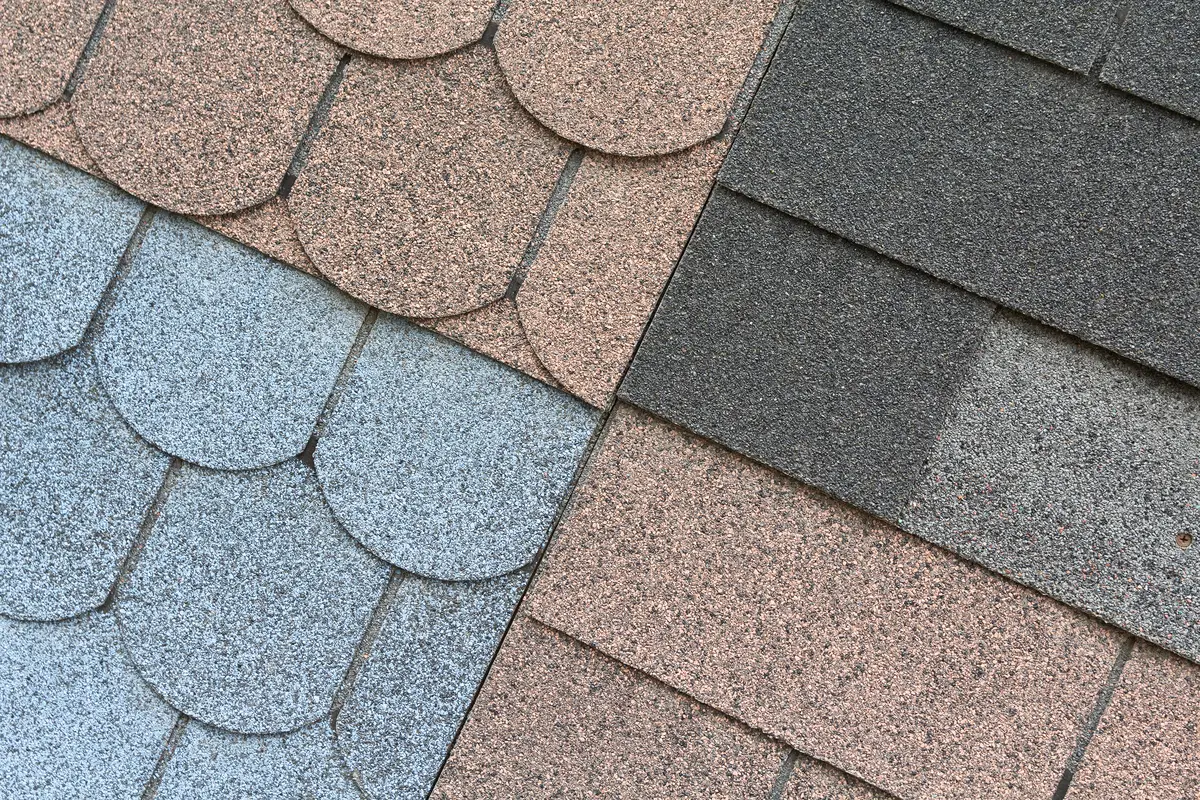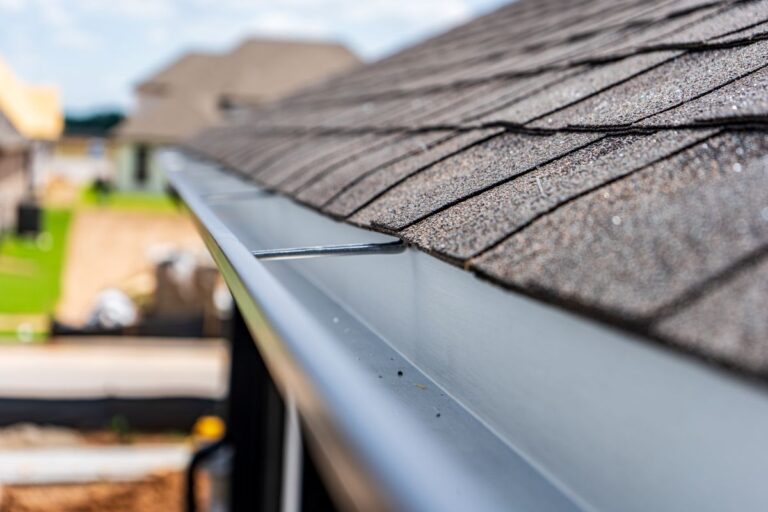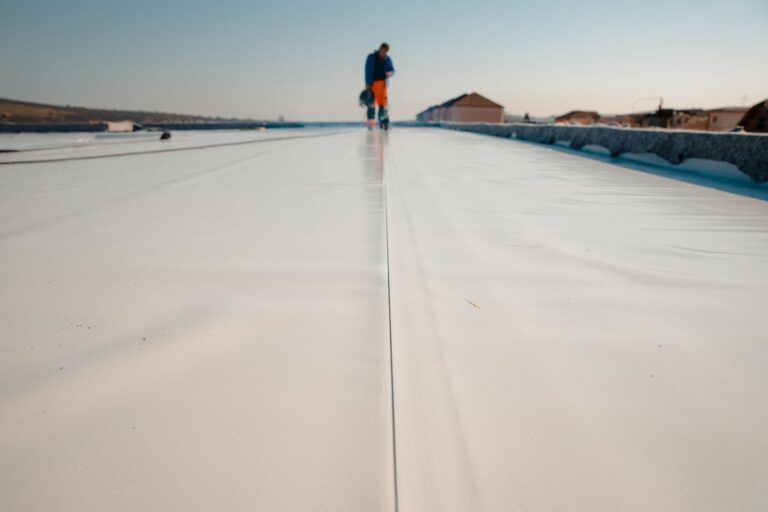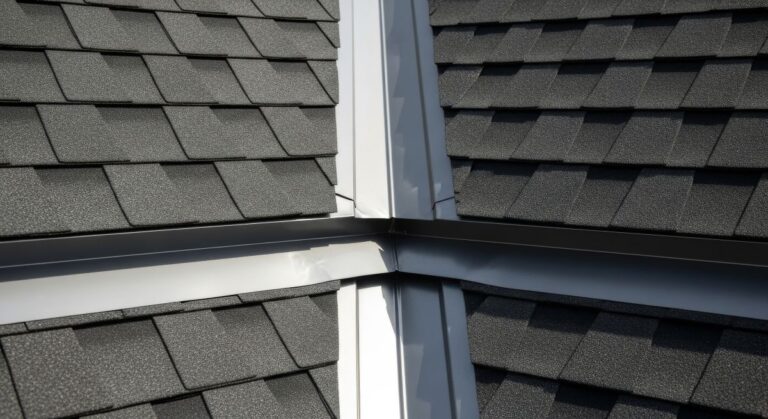Choosing the right roofing material is crucial for homeowners needing to replace their roof. With a myriad of options available, it’s easy to feel overwhelmed. Two popular choices are asphalt shingles and composite shingles. Both have their advantages and disadvantages, and understanding these can help you make an informed decision.
This article will explore:
- The differences between asphalt vs composite shingles
- Their benefits
- Drawbacks
- Cost considerations
- Which might be best for your home
What Are Asphalt Shingles?
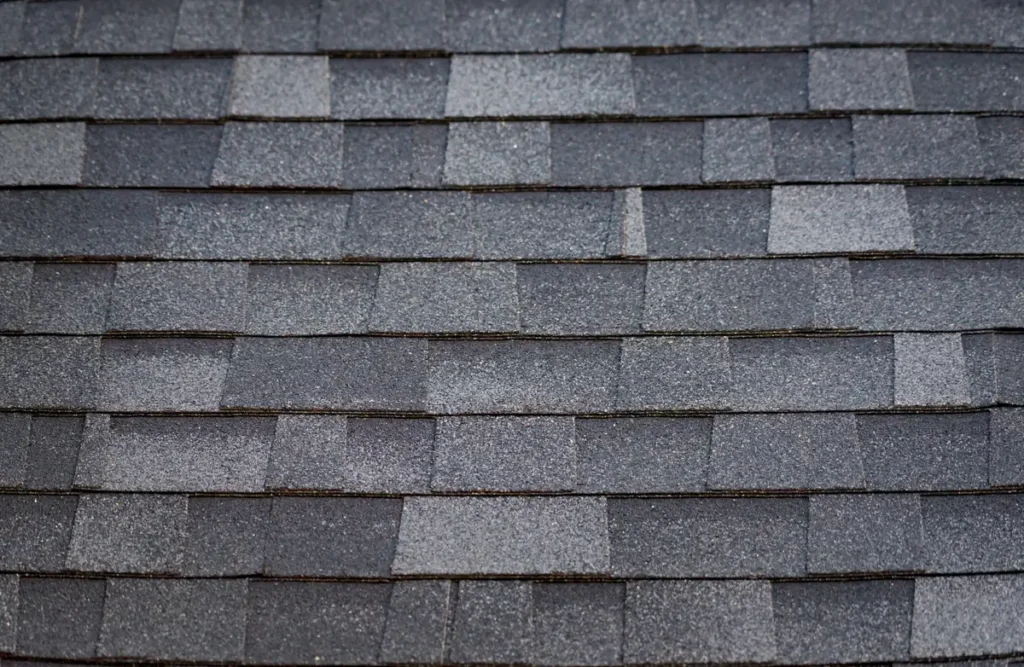
Asphalt shingles are the most commonly used roofing material in North America. They consist of a base layer made from fiberglass or organic materials, which is then coated with asphalt for waterproofing. Finally, they are topped with granules made from ceramic to protect the shingles from UV rays and provide color.
Types of Asphalt Shingles
- 3-Tab Shingles: These are the most basic type and have a flat, uniform appearance. They are lightweight and affordable, making them a popular choice for budget-conscious homeowners.
- Architectural Shingles (or Laminate Shingles): These are thicker and more durable than 3-tab shingles. They have a more dimensional look, mimicking the appearance of wood or slate.
- Luxury Shingles: These are the top-tier option, offering enhanced durability and a high-end aesthetic. They are designed to replicate the look of natural slate or cedar shakes.
👍 Advantages of Asphalt Shingles
- Affordability: Asphalt shingles are generally less expensive than other roofing materials, making them an attractive option for many homeowners.
- Ease of Installation: Their straightforward installation process can save time and labor costs.
- Variety of Styles and Colors: There are numerous design options to match any home aesthetic.
- Fire Resistance: Most asphalt shingles have a Class A fire rating, offering the highest level of protection.
- Recyclable: Many asphalt shingles can be recycled at the end of their life cycle.
👎 Disadvantages of Asphalt Shingles
- Lifespan: Asphalt shingles typically last between 15 to 30 years, which is shorter compared to other materials like metal or tile.
- Weather Sensitivity: They can crack or become damaged in extreme weather conditions such as hail or high winds.
- Moss and Algae Growth: In moist climates, they may be prone to moss and algae growth without proper maintenance.
What Are Composite Shingles?
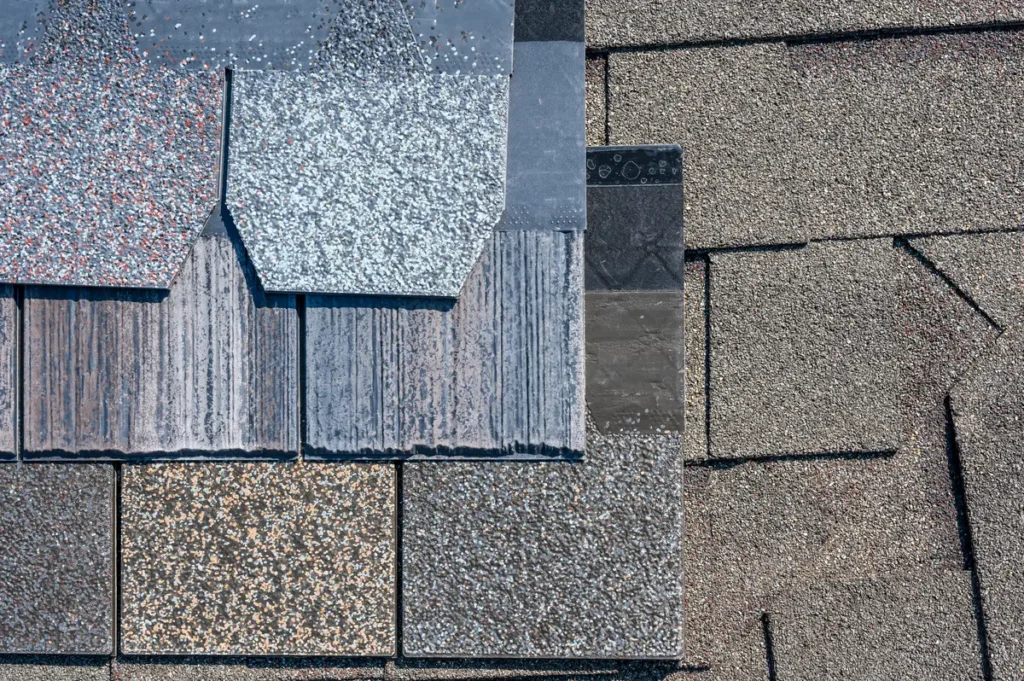
Composite shingles, also known as synthetic or polymer shingles, are made from a blend of materials such as fiberglass, recycled paper products, and asphalt. Some composite shingles use advanced materials like rubber or plastic polymers to enhance durability and mimic the appearance of natural materials like wood or slate.
Advantages of Composite Shingles
- Durability: Composite shingles are designed to last longer than traditional asphalt shingles, often reaching 30 to 50 years.
- Weather Resistance: They are highly resistant to extreme weather conditions, including strong winds and heavy rain.
- Lightweight: Their lighter weight can reduce the structural demands on your home.
- Eco-Friendly Options: Many composite shingles are made using recycled materials, making them a more sustainable choice.
- Variety of Designs: They can emulate the appearance of wood, slate, or tile without the associated drawbacks of those materials.
Disadvantages of Composite Shingles
- Cost: Composite shingles tend to be more expensive upfront compared to asphalt shingles.
- Limited Availability: Depending on your location, these shingles may not be as readily available as asphalt shingles.
- Complex Installation: They might require specialized installation techniques, potentially increasing installation costs.
Cost Comparison
When comparing asphalt vs composite shingles, cost is a significant factor for most homeowners. Here’s a breakdown of the expenses involved with each:
Asphalt Shingles
- Material Cost: $1.00 to $3.50 per square foot for 3-tab shingles; $3.50 to $5.50 for architectural shingles.
- Installation Cost: Typically ranges from $2.00 to $4.25 per square foot.
- Total Cost (including labor and materials): Can range from $5,000 to $12,000 for an average-sized home.
Composite Shingles
- Material Cost: $4.00 to $6.50 per square foot.
- Installation Cost: Generally ranges from $3.00 to $5.50 per square foot due to the complexity of installation.
- Total Cost (including labor and materials): Typically ranges from $10,000 to $20,000 for an average-sized home.
While composite shingles are more expensive, their durability and longevity can provide long-term savings on repairs and replacements.
Which Shingle Is Right for You?
Choosing between asphalt and composite shingles depends on various factors, including your budget, climate, and aesthetic preferences. Here are some considerations to help you decide:
Budget:
If you’re working with a limited budget, asphalt shingles may be the better choice due to their lower upfront cost. If you can invest more initially for a longer lifespan, composite shingles might offer better long-term value.
Climate:
In areas prone to severe weather, composite shingles may provide better protection against wind and hail. In mild climates, asphalt shingles can perform adequately without significant weather-related concerns.
Aesthetic Preferences:
If you desire a specific look, such as the appearance of slate or wood, composite shingles offer a wider range of design options.
Asphalt shingles also offer plenty of style and color options but may not match the authenticity of composite materials.
Environmental Impact:
For environmentally-conscious homeowners, composite shingles made from recycled materials offer a sustainable roofing option. Recyclable asphalt shingles can also be eco-friendly, but fewer options are available.
Maintenance and Care
No matter which type of shingle you choose, regular maintenance is essential to prolong the life of your roof. Here are some maintenance tips for both asphalt and composite shingles:
Asphalt Shingles
- Inspect Regularly for missing, cracked, or curled shingles.
- Clean Gutters to prevent water backup and damage.
- Remove Debris such as leaves and branches to prevent moisture retention.
- Check Flashings around chimneys and vents for potential leaks.
- Address Moss and Algae growth with appropriate treatments.
Composite Shingles
- Inspect Annually for any signs of damage or wear.
- Maintain Clean Gutters to ensure proper water drainage.
- Minimize Moss and Algae growth with regular cleanings or treatments.
- Ensure Proper Ventilation in the attic to prevent heat buildup.
We’ll Help You Understand The Difference Between Asphalt vs Composite Shingles
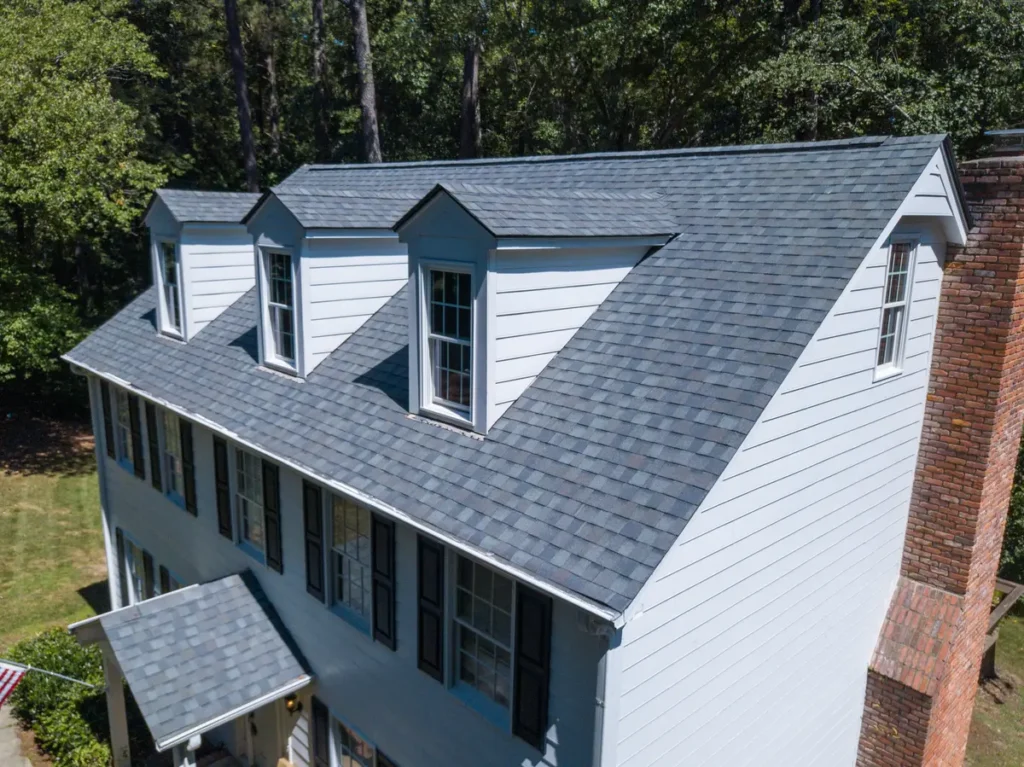
Both asphalt and composite shingles have their strengths and weaknesses, but they can both provide a beautiful and functional roof for your home with the proper care. Consider your budget, climate, and aesthetic preferences when making your choice. And remember, no matter which option you select, professional installation and regular maintenance are key to ensuring the longevity and performance of your roof.
For homeowners ready to replace their roof, making the right choice between asphalt and composite shingles can lead to years of satisfaction and home protection. Make sure to consult with roofing professionals at Johnson Restoration to get detailed advice tailored to your specific situation.
